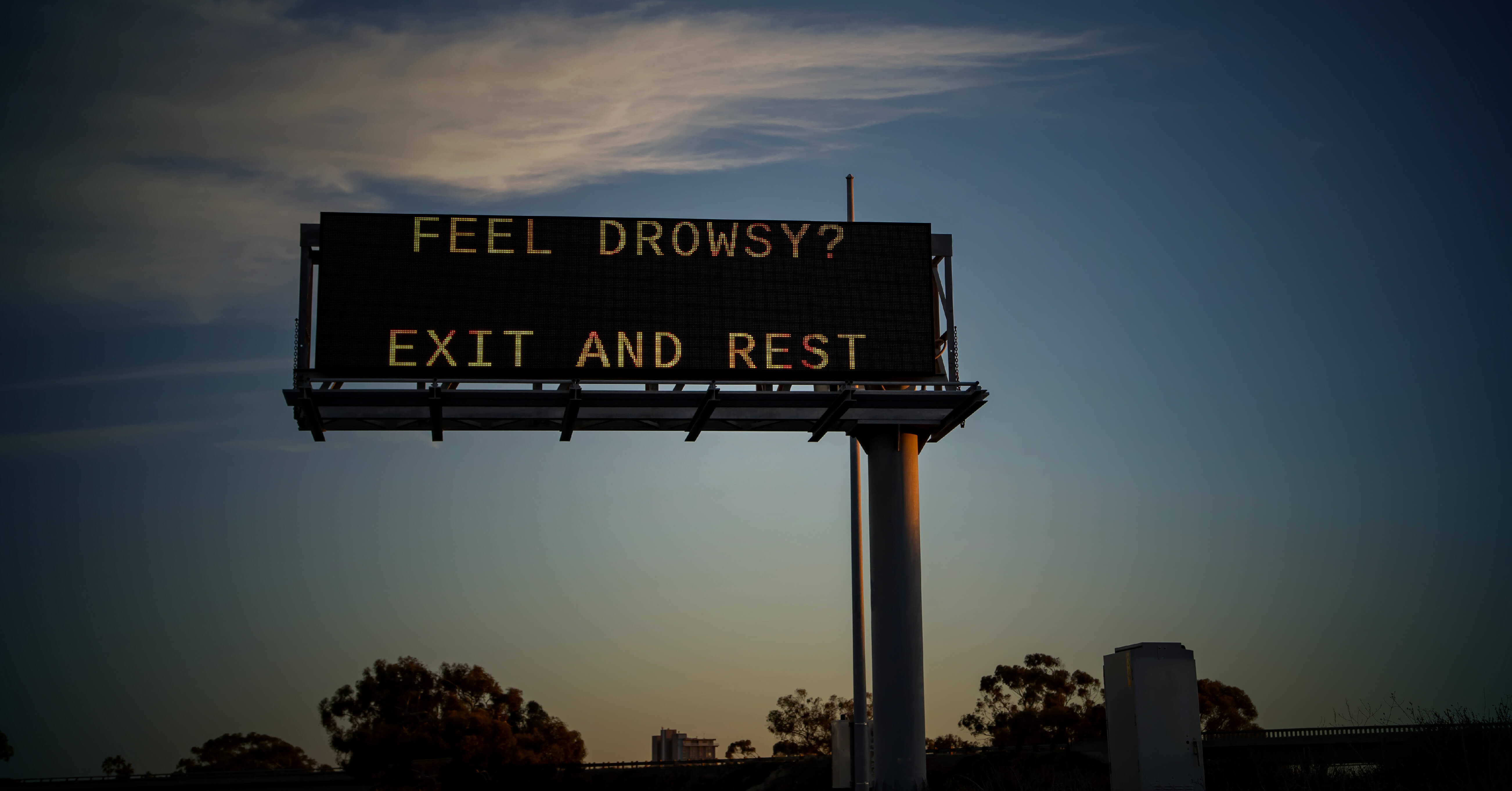Whether its study, social life or scrolling, these lifestyle habits and choices have one thing in common. They can all stand in the way of a good night’s sleep. But what if the damage went further than that midday craving for a caffeine fix?
Here’s the harsh reality:
One in six fatal crashes on motorways and major roads are fatigue related.[1]
So, if you’re feeling tired, choose a pick-me-up over picking your keys up.
Because drowsy driving can be as dangerous as drink driving.[2]
Research shows that someone who hasn’t slept for 24 hours will have ‘impaired driving skills’ like someone just over the drink driving limit.
So how could this play out in real life?
- Delayed reaction time
“I didn’t see her until it was too late…”
- Shorter attention span
“I only took my eyes off the road for a moment…”
- Lack of control over the car
“I tried to swerve but the car started to spin.”
- Slower decision-making
“I should have slowed down. If only I had…”
Choose rest over regret. You might think there’s no law against being tired. But a sleep deprived driver causing a fatal car crash can be charged with death by dangerous driving.
Research shows that tiredness is the likely cause for up to 20% of UK car crashes. Sleep really can save lives
Here’s our ‘Don’t Drive with Tired Eyes’ guide, to help keep you on the safe side:
Say no to night driving
Especially times when you’d usually be asleep. Our data shows the likelihood of crashing increases by up to 40% between 11pm and 4am. Where night driving is unavoidable, make sure you’re well rested, and take breaks every couple of hours.
Lose the after-lunch lull
Tiredness can hit hard during the day. Especially after eating. Early afternoon (2pm-4pm) sees your body clock take a natural dip, causing drowsiness and reduced concentration.[3] Be aware of your energy levels if you dine before you drive.
Watch out for warning signs
There are the more obvious sleepy signals such as heavy eyes and nodding head. But by this time, it’s already too late. If you’re yawning, blinking more than usual, and finding it hard to concentrate, delay or pause your journey (pull over when it’s safe). Sleep follows more quickly than you think.
Health matters
Many prescription and over-the-counter medications cause drowsiness. Always check the side effect warnings on the packaging. If you’re not sure, talk to your doctor, pharmacist, or healthcare professional. You must tell your insurance provider if you have a medical condition that affects your driving, or you risk your policy being cancelled or a claim being declined. You must also tell the DVLA. You could be fined up to £1,000 if you don’t.[4] You could also be prosecuted if you have an accident.
Avoid social jetlag
Keeping your sleep consistent is best. Avoid getting social jetlag by sticking to the same routine every day – even at weekends.[5] Because recent research shows that inconsistent and poor-quality sleep impacts the choices we make. We’re not just talking driving here. So, if you’re craving carbs and savouring sugary snacks, your sleep schedule may need a reset.
Move away from the doughnuts and read our Crash Course on Road Risks for more ways to stay safe.
You can earn up to 100 Bonus Miles a month by following some of our tips above. The little black box in your car helps with this, measuring things like:
- Speed
- Smooth driving
- Taking breaks
- Time of day
- Motorway miles
Your Bonus Miles score could also help you get a better price at renewal.
Remember: the safer you drive, the further you’ll go.
As always, keep an eye on Your Portal for your personalised driving updates.
[1] https://thesleepcharity.org.uk/information-support/adults/road-safety-fatigue/
[2] https://www.ncbi.nlm.nih.gov/pmc/articles/PMC7310070/
[3] https://www.brake.org.uk/get-involved/take-action/mybrake/knowledge-centre/driver-fatigue#:~:text=Factors%20that%20contribute%20to%20driver%20fatigue&text=Time%20of%20day%3A%20The%20most,causing%20drowsiness%20and%20reduced%20concentration.
[4] https://www.gov.uk/driving-medical-conditions
[5] https://www.bbc.com/news/health-66372087
